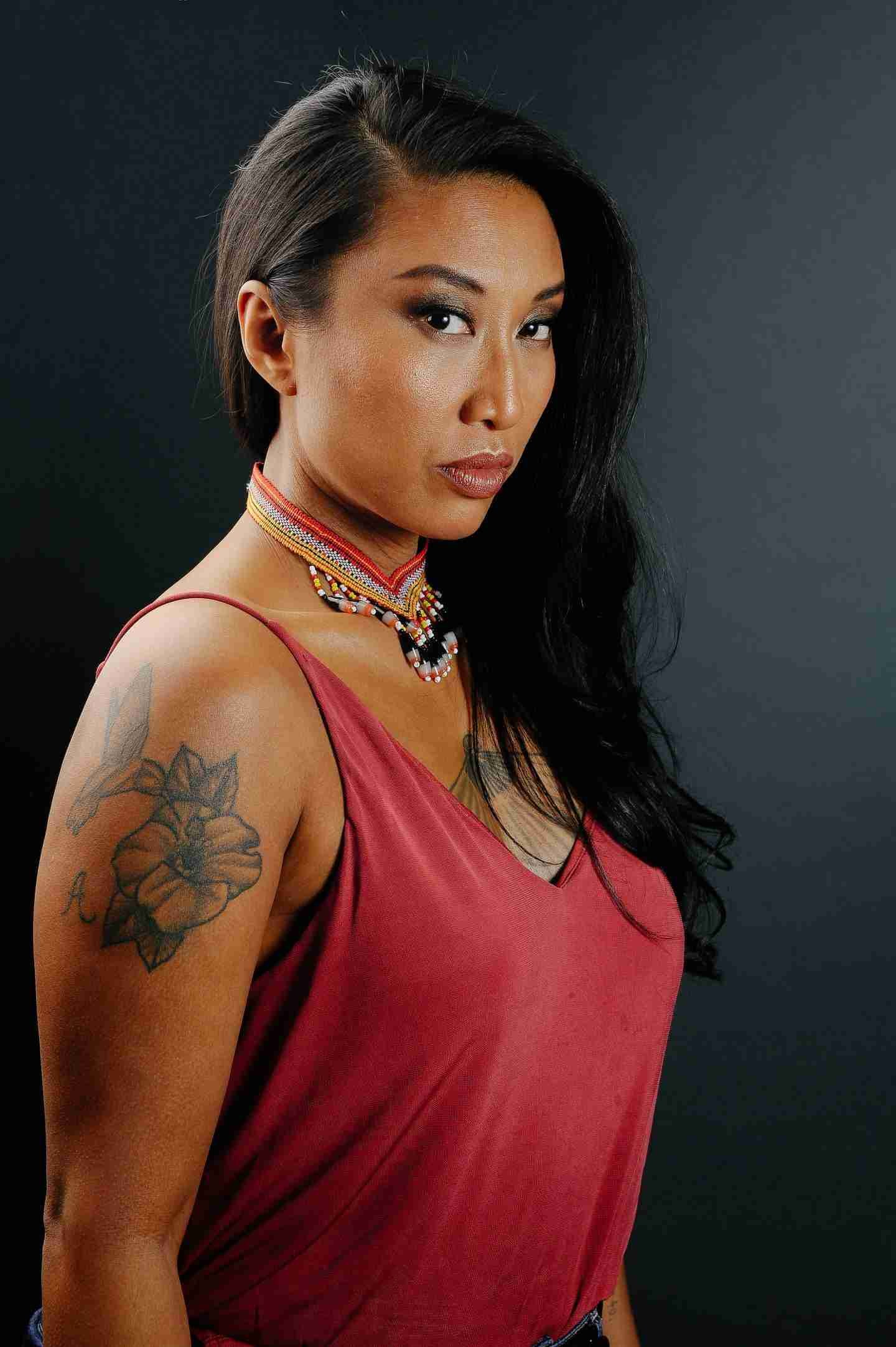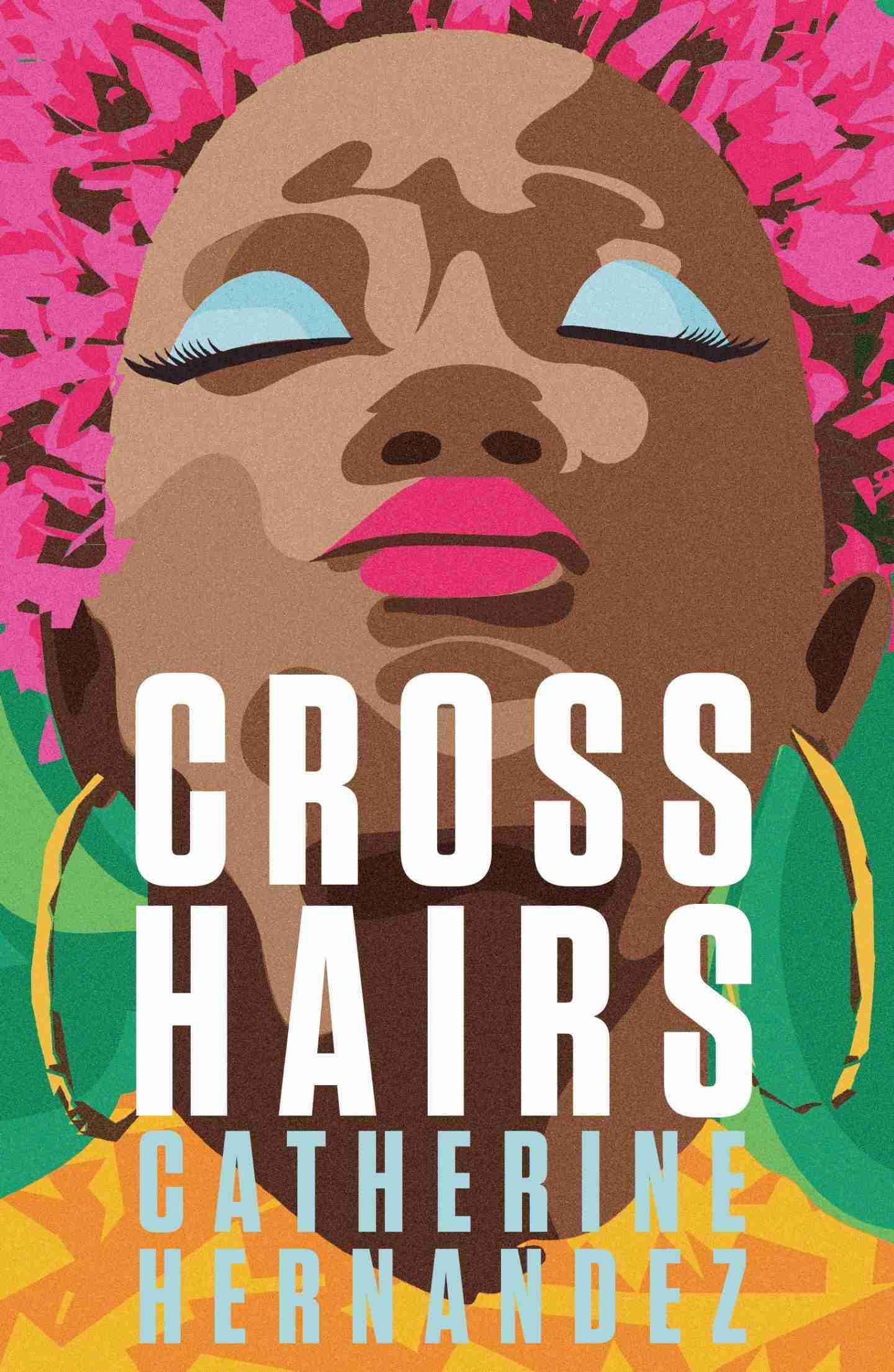
Trigger warnings abound in Crosshairs; a wonderfully written, hard to read, and timely novel.
With the world still in the midst of the Covid crisis you’d be forgiven for seeking out a bit of comfort and a re-read of Harry Potter. In times of discomfort, it is natural for our instinct of self-preservation to win out. Catherine Hernandez’s second novel challenges us to look away from our own needs and to lean into discomfort.
Crosshairs is set in a dystopian, near-future Canada that has been ravaged by flooding. In a country facing mass homelessness and poisoned water a new, fascist regime called ‘The Boots’ rises to power. The Boots begin to wage a war against people of colour, the disabled, and LGBTQ+ communities. Curbing their freedom of movement, robbing them of financial security, and forcing them into labour camps. However, the human spirit and the need to hope are not so easily crushed. In the face of state-sanctioned abuse, the oppressed, labeled by those in power as ‘The Others’, and their allies form a resistance. Over three hundred harrowing pages the reader follows the story of Kay, a queer, black drag queen, who goes into hiding and fights to stay alive for long enough to be seen once again.
The beauty and importance of Hernandez’s writing stem from the fact that this is not just the story of Kay. Crosshairs is full of complex and complete people who are all given the space to tell their own story; a kindness so often missing in today’s society. From Liv, the resistance leader who uses the privilege of her skin tone to become a powerful ally to those in need. To Firuzeh, a headstrong social worker who dedicates her life to supporting the trans community. From Bahadur, a transmasculine refugee who is trying to rediscover their faith in humanity. To Beck, an ex-army officer who is trying to rediscover his faith in himself.
It is impossible not to become attached to these characters as you read about their lives and struggles. Yes, there’s no getting away from the fact that, if you truly engage with it, this is a distressing book to read. Made all the more so by its close parallels with reality, whether in history or in the present day. But, it is also a compelling read and a genuine page-turner. You’ll be on the edge of your seat with nerves, willing these people on to fight and hoping for their emancipation. It’s not all brutal, don’t worry. There is inhumane behaviour but it is punctured by heartfelt reconciliation, kindness, and love.

Hernandez weaves important messages throughout her writing. For example, the value of visibility for the minority groups of our societies. From the beginning of Crosshairs, we see that The Others are forced into hiding. The safest place for them is out of sight and out of mind, but this is the exact issue that we so often come up against in today’s society: out of sight, out of mind. If people are not seen are they forgotten?
Hernandez’s subtext seems to go beyond this. Suggesting that being seen can be a validation of existence, but the visibility that she is calling for is the recognition of a person with a unique identity. The Boots may see Kay but they don’t see a person, they see an Other. Helped on through state forced homogenising acts like shaved heads and verification cards. In other scenes, we see Kay reveling in pockets of freedom; painting his nails, and wearing Liv’s kimono. So that when he looks in the mirror he sees himself, slightly skinnier, but still him.
Crosshairs also highlights the importance of allyship. People like Beck, the ex-army officer, or Liv, the resistance leader, are in positions of privilege. They can hide their queer sexuality and find safety in their lighter skin tone. Rather than seeking their own comfort, they turn their eyes outwards. They look to see how they can help those who don’t have this privilege. Without these allies, it is clear that change would be much harder to achieve. There is a refrain on allyship that is repeated by characters throughout the book. A mantra that acts both as a reminder of purpose and a call to action.
The power of language is clearly of the utmost importance to Hernandez and the people within Crosshairs. Whether we see that in the affirmations which both sides repeat, or in the impact of people retelling their stories. It’s also brought to bear in the labels that are forced upon characters to deem them to be something ‘Other’ than human, versus the labels which people freely choose (like the power of a given name). The obligation of wider society is to try to use the right words, at the right times. To be unafraid to fail in that attempt and to be open to learning from those failures.
Fundamentally, Crosshairs is a story that we hope remains in fiction but from the get-go, the reader is made aware that that is not a guarantee. You can’t read this book, put it down and move on unaffected. For Hernandez, a proud queer woman of colour, this book is clearly meant to be more than purely a literary endeavour. Before the story even begins, she addresses us directly with a call to arms, which will remain ringing in your ears for a long time after you’ve finished the final page:
To the people of privilege
You will survive your discomfort while reading this book
But many like me, who sit dangerously at various intersections of identity,
will not survive long enough for you to complete the last page
What will you do?
If you’ve already read Crosshairs and are looking for some new books then take a look at our list of the best queer reads for summer.
If you want to learn a bit more about Catherine Hernandez and her many talents then head over to her website.
Stay safe and happy reading.
Team Nonchalant x


